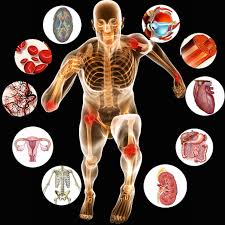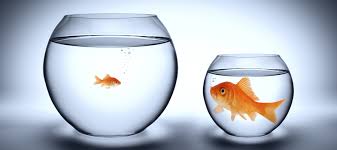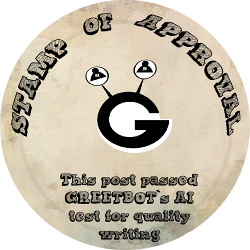Awareness of Depression and a Natural Way to Potentially Remedy Anxiety and Depression
The human body is a marvelous vessel

Comprising of so many interdependent systems, functions, and mechanisms ranging from molecular and chemical processes to overall tissue and organ roles, there is so much more than meets the eye. Dedicated and driven scientists have, for years, attempted at making discovering within our bodies, and with many answers and hypotheses, pose even more questions and challenges. Biology is essentially the study of how much we do not know about our bodies. With each individual being unique in their own goals, traits, and thoughts – the physiology of each individual differs exponentially greater. There have been many advances in discoveries of our bodies, as well as newly established branches of studies made in attempt to better understand our bodies and its accompanied processes.

Medicine is used to treat patients of their diseases and illnesses when our homeostatic regulatory processes are unable to do so. If an individual cannot secrete insulin from their B1 cells in the pancreas, the individual has diabetes and will be given medication accordingly. With the many advances in medicine come more research and studies in genetics, epigenetics, the gut microbiome, and much more.
Today, I will discuss concepts that I hope might resonate and help with individuals suffering from anxiety and depression, as well as hopefully being able to raise awareness of this serious disease state. If you would like to skip my discussion on depression and look into the natural ways to potentially remedy this disease state, please scroll to the bottom where I have highlighted 5 key steps that I see beneficial. These steps are in no way a substitute for medication and if symptoms are severe then I urge you to seek help from a healthcare professional.
Otherwise, let’s get to it.
First, first we must discuss what depression is, for there are some misconceptions.
According to the American Psychiatry Association (APA), symptoms of major depressive disorder -commonly known as depression - are:
- Feeling sad or having a depressed mood
- Loss of interest or pleasure in activities once enjoyed
- Changes in appetite — weight loss or gain unrelated to dieting
- Trouble sleeping or sleeping too much
- Loss of energy or increased fatigue
- Increase in purposeless physical activity (e.g., hand-wringing or pacing) or slowed movements and speech (actions observable by others)
- Feeling worthless or guilty
- Difficulty thinking, concentrating or making decisions
- Thoughts of death or suicide
The APA explains that if some of these symptoms last for two weeks(1), then the individual is appropriately diagnosed with depression and typically prescribed an anti-depressant medication. There are many of those afflicted with this disease that benefit greatly with the prescription of an anti-depressant. However, this one-size-fit-all approach may not give some people the help they need.

It is important to understand the history of anti-depressant medication and what it does mechanistically in the body. The very first anti-depressive medications actually were stumbled upon by accident! Monoamine Oxidase Inhibitors (MAOIs) are the first generation anti-depressants. These medications derived from anti-malarial meds… you know, malaria? – the parasitic disease caused by protozoal-infected mosquito bites. So what happened was patients being treated with malaria were seen to exhibit happiness as a side-effect of the disease. The term side-effect correlates with the unintended effect of the administered drug. Upon studying this drug and its chemistry, observationally we were able to see how it affected the neurochemistry.
Let’s break down the term ‘Monoamine Oxidase Inhibitors’. Monoamine, meaning ‘one-amine’, primarily refers to the three main neurotransmitters in the brain that are composed of only ‘one-amine’, rather than two amines or three amines, etc. An amine is an organic compound that deals with many biological processes. The monoamine neurotransmitters are commonly referred to as norepinephrine (NE), dopamine (DA), and serotonin (5HT). Today, we will refer to ‘oxidase’ as an enzyme used in chemical reactions to essentially degrade/break down the neurotransmitters expressed above. The term ‘inhibition’ can be synonymous with ‘prevention’. So we can now understand MAO inhibitors as chemical molecules used to prevent the breakdown of our neurotransmitters. It is also important to know that MAO-A and B (there are two types of MAO) are natural and important enzymes used for the regulation of our neurotransmitter life cycles, and ultimately inhibition of this enzyme (MAO) is what is happening upon intake of these medicines.
Moving forward, we do not typically see patients prescribed this medicine any longer due to its lack of specificity. The goal of many medications are to limit side effects and increase specificity to receptors where the best therapeutic effects may be found. Having high amounts of these neurotransmitters in the brain is not the best approach to reaching the wanted anti-depressive effects. It is important to understand the main concepts revolving the neurotransmitters expressed above. NE is released upon activation of our sympathetic nervous system, also known as the fight-or-flight response. It is also considered a stress hormone because of its effects it has on other parts of the body. NE can express increased concentration, higher blood pressure, dilated pupils, increased respiratory rates, and much more. So having high amounts of NE may not be ideal when trying to combat a patient’s depression. DA is associated with the motivation-reward centers of the brain, as well as found to affect many other parts of the body. High amounts of DA may also cause high blood pressure, as well as nervousness, paranoia, irregular heartbeats, and induce many other effects on biological processes.
5HT is important for today’s discussion of anti-depressive effects because 5HT is typically associated with an individual’s happiness or mood, social behaviors, and regulation of other essential functions. Most commonly prescribed antidepressants are known as Selective Serotonin Reuptake Inhibitors (SSRIs). These drugs specifically target 5HT by increasing the amounts found in the synapse by preventing/inhibiting its reuptake into the neuron. More specificity leads to less side effects and enhanced therapeutic effects.
Unfortunately, as specific and efficient this approach seems, there are still many side effects that patients seem to experience ranging from headaches and dry mouth to impotence and sleep disturbances.
There are indeed many other types of antidepressant drug classes, some express great effects, others not so much. The main concept I wish to highlight is that medicine and its correlating disease state do not necessarily work 100% of the time, and additionally patients unnecessarily sacrifice the other functions of their body upon the medications' therapeutic effects' activation.
But what if there is a flaw in this approach?
I believe there are many reasons that antidepressants should not be the first approach when a patient presents to their doctor with ongoing symptoms. We understand that depression is indeed a disease – not just an emotional imbalance, but observed as a neurotransmitter imbalance, potentially caused by so many different factors. Although we do have very dedicated scientists and healthcare professionals attempting to tackle this problem, as well as many other problems, their efforts do not seem to transpire as well as they should statistically.
One study published in the journal Pediatrics found that “the prevalence of teens who reported an MDE in the previous 12 months jumped from 8.7% in 2005 to 11.5% in 2014. That’s a 37% increase”(2). MDE stands for a major depressive episode, being the two-week span of exhibiting some of the symptoms of depression that were listed above by the APA. Moreover, "The overall suicide rate rose by 24 percent from 1999 to 2014", according to the National Center for Health Statistics(3). There are more studies that express the increased rates of mental health diseases from 2014-2016 that I will include in the bottom of this article.
Bottom line is, with the efforts of many parties to treat this disease, we have not been doing a great job collectively.
I believe a major contributor to the problems at hand may be due to the healthcare environment. This is not an attempt to denounce any particular role of any groups of people for there are definitely extraordinary persons in healthcare community and its many facets. I have met many great people in the world of medicine and am in contact with many healthcare professionals day to day. One factor I believe that cripples patient-care is miscommunication or lack of communication from doctors to patients and vice versa. Due to many symptoms of depression being rather subjective in nature, this may be difficult to accurately diagnose. Additionally, patients that feel depressed for a period of time may self-diagnose rather than attempt to reach out to mental-health professionals for reasons including. but not limited to:
- Not wanting to spend money
- Fear of being stereotyped/treated differently
- Certainty that the individual has the disease-state
- Not wanting to know the diagnosis
I believe talk-therapy is important, not just for the positive outcomes it has on patients dealing with these disorders, but also for overall understanding of the self.
Anyways, doctors also are working people with their lives to live as well. I understand patient-care should and definitely is at the forefront of many doctors’ intentions and goals, however with the average time a doctor has to allocate in hopes to treat and help each individual patient, while still being human and potentially not up-to-date on certain studies and information, there is much room for error and misdiagnoses.
We are all fallible.
Additionally, the human body being so complex, intricate, and unique from one to another – it is somewhat unfair to the patient as a first line defense to treat their depressive symptoms with one or more prescription medication(s).
Another major player regarding inaccuracies in depression I believe comes from misinformation and lack of education on the subject. No one truly knows how it feels to be depressed unless they have experienced it first-hand. It is a serious mental illness that should never be stigmatized. I have many more views and opinions regarding my experiences interacting within the healthcare community and independent research I have done, if there are any questions or ideas you would like to dive in to, feel free to communicate them in the comment section below.
So what do I think should be done to combat this sticky situation we find ourselves in?
Firstly, to solve any problem, we must understand what the problem consists of. This means we must dissect each characteristic of the problem as unbiased and objectively as possible. Through patient education will the best solutions come. A healthcare system where patients and doctors collaborate to not only help the individual patient with their vitality, but to also promote understanding and knowledge to further the livelihood of other patients afflicted with the same disease state.
Secondly, I believe taking extra-steps should be implemented to combat the depressive symptoms without incorporating antidepressants right away. More interprofessional collaboration and communication should be implemented to keep doctors and healthcare professionals as up-to-date and informed as possible. Rather than perceiving depression as just a neurological dysfunction or monoamine dysregulation, I truly believe we need to look at these disease states through other perspectives as well.
This including the gut microbiome.

Bacterial cells outnumber our human cells 10 to 1. There are literally trillions of microbes living in and on ourselves. A majority of diverse bacteria live in our stomach and we have a symbiotic relationship with them, and in fact require them for so many reasons. There are good bacteria and bad bacteria. When bad bacteria outnumber good bacteria in specific regions of the body, infections typically arise. Probiotics are used as ways to harvest healthy bacteria in our body. Yogurt, for example, is cultured with different forms of healthy bacteria to help promote the health of the consumer.
So how does the stomach affect what goes on in the brain?
Although there is no one definitive theory, there are many studies, as well as a large number of sub-hypotheses that interconnect with each other to make a plausible inference that the gut microbiome contributes to the expression of depressive symptoms.
Here is one study: https://www.ncbi.nlm.nih.gov/pmc/articles/PMC4662178/
“The relationship between the microbiota and anxiety/depression has been studied mainly using animal models. Campylobacter jejuni administered orally to rats in subclinical doses led to anxiety-like behavior without an immune response”.
So this increased amounts of bacteria induced a psychotic effect in the lab rats.
“Experimentally elevated hypothalamic-pituitary-adrenal (HPA) axis response and depression in GF [Germ-Free] rats can be reversed by administering a single bacterium, Bifidobacterium infantis, which is found predominantly in the neonatal intestinal tract, and probiotic drugs. This bacterium is defined as “psychobiotic” due to its antidepressant effects.”
This goes hand-in-hand with bacterial being able to directly affect the psyche of the host.
“In another experiment, rats given Lactobacillus rhamnosus for 28 days showed a decline in both anxiety and depression scores”
“Recent research has suggested that the gut microbiota has an influence on mood. Poor diet is a risk factor for depression; thus, a healthy diet may prevent depression. Regulation of the gut microbiota using diet, probiotics and FMT [fecal microbiota transplant] may have important benefits for preventing and treating depression. The gut-brain axis could aid in understanding and treating neuropsychiatric disorders, especially depression.”
If you or anyone are afflicted with anxiety or depression, please realize you are not alone and that although many combat this disease in silence, it is compassion that helps drive us as humans. Never be afraid to ask for help, and always love yourself. Listed below are some easier to implement and natural ways to potentially fight this chemical imbalance.
I hope it helps.
Natural Ways to Potentially Remedy Anxiety and Depression.
Step 1: Detox
- Drink lemon water in the mornings on an empty stomach
- Cut out any artificial sweeteners, processed foods, or chemically-modified foods from your diet
- Intermittent fast
Step 2: Get Active
- Do some stretches to get the blood flowing throughout the body
- Yoga, light cardiovascular workout, strength training, meditation are all great for stress-relief as well as microbiota farming
Step 3: Hydrate
- The more I learn about the chemical processes that are going through our bodies as you have just finished reading the last few sentences, the more I realize how important water is for all of the mechanisms to be utilized at full potential, drink more water
Step 4: Alter Diet – Check out the ModiMed diet
- Eat more fibrous foods
- Incorporate healthy fats from nuts and olive oil
- Stay away from refined sugars, refined carbohydrates
Step 5: Self-Educate
- I believe to overcome any problem, self-education is key. If the problem is physiological, I believe self-education is imperative. It is your body, your life, your relationship with yourself. Moreover, you must take everything you study and come upon with a grain of salt, and trust in doctors’ judgements.
I really hope this article helps raise the awareness of depression and anxiety, and may it come in contact with someone who needs the information. I am in no means trying to dispel persons from stopping any courses of medication, however I do believe it is important to self-educate and attempt to collaborate and learn with and from your doctor(s) for the best patient outcome.
References
- https://www.psychiatry.org/patients-families/depression/what-is-depression
- https://www.cdc.gov/nchs/products/databriefs/db241.htm
- http://time.com/4572593/increase-depression-teens-teenage-mental-health/
a. http://pediatrics.aappublications.org/content/early/2016/11/10/peds.2016-1878
Extra Readings:
- https://www.ncbi.nlm.nih.gov/pmc/articles/PMC181155/
- https://khn.org/news/15-minute-doctor-visits/
- http://www.mentalhealthamerica.net/issues/state-mental-health-america
- http://www.mentalhealthamerica.net/issues/mental-health-america-youth-data
- https://afsp.org/about-suicide/suicide-statistics/
- https://www.psychologytoday.com/blog/diagnosis-diet/201702/clinical-trial-finds-diet-works-depression
- https://www.ncbi.nlm.nih.gov/pmc/articles/PMC4662178/
This was one of the most sensible articles I've read about dealing with depression... People rarely emphasize the importance of a healthy diet and lifestyle, and instead, most of the time patients are treated like a "broken bike" that broke down "just suddently" and must be fixed through invasive ways.
Thank you for sharing this saed!
I appreciate the kind words!
and yes I agree, too often are people quick to prescribe a medication, rather than attempt to alleviate the symptoms through holistic or natural approaches!
Hi. I am @greetbot - a bot that uses AI to look for newbies who write good content!

Your post was approved by me. As reward it will be resteemed by a resteeming service.
Resteemed by @resteembot! Good Luck!
The resteem was paid by @greetbot
Curious?
The @resteembot's introduction post
Get more from @resteembot with the #resteembotsentme initiative
Check out the great posts I already resteemed.
Resteemed by @resteembot! Good Luck!
The resteem was paid by @greetbot
Curious?
The @resteembot's introduction post
Get more from @resteembot with the #resteembotsentme initiative
Check out the great posts I already resteemed.
Congratulations @saed! You received a personal award!
Click here to view your Board
Do not miss the last post from @steemitboard:
Congratulations @saed! You received a personal award!
You can view your badges on your Steem Board and compare to others on the Steem Ranking
Vote for @Steemitboard as a witness to get one more award and increased upvotes!